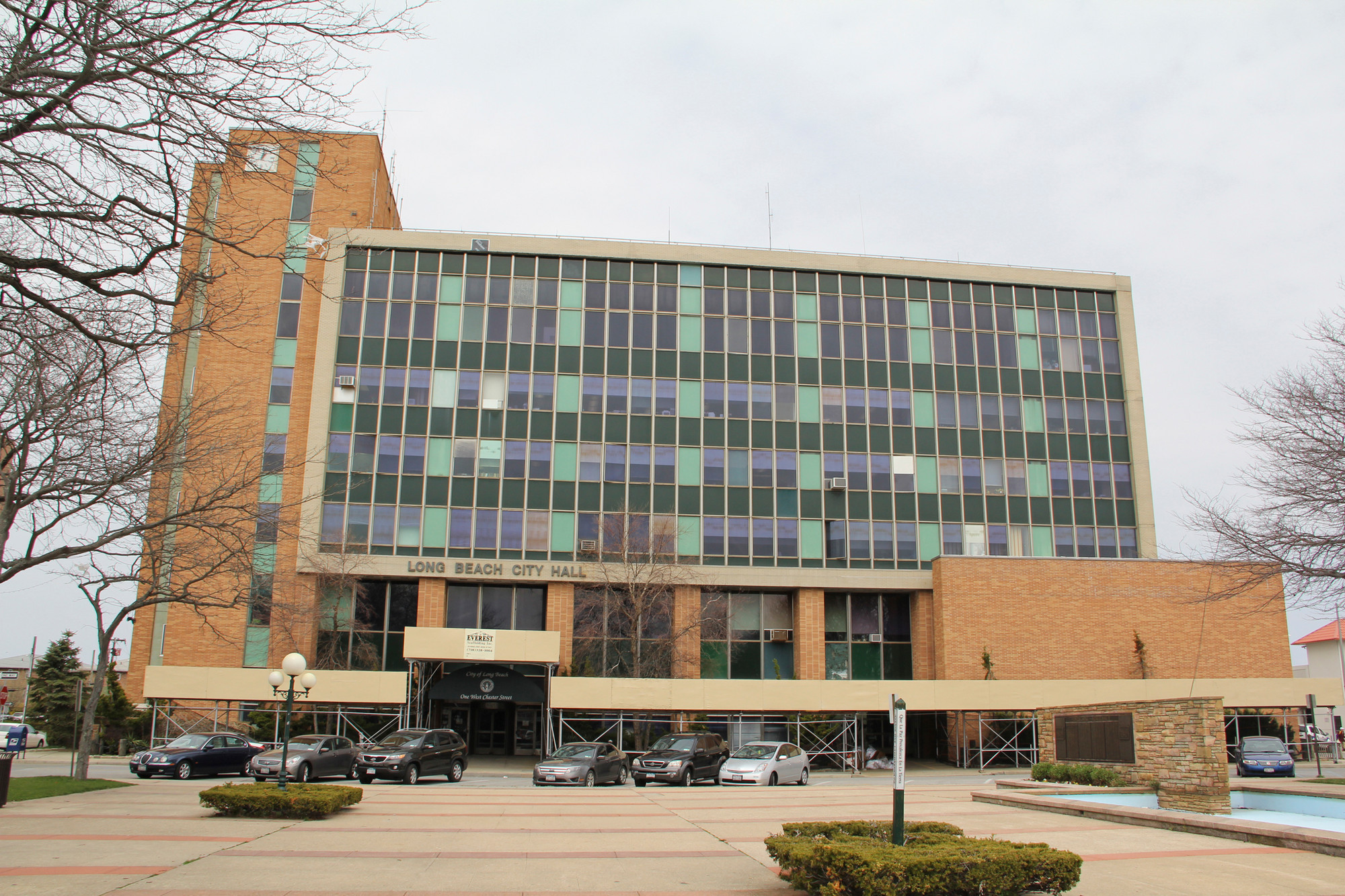Long Beach’s $12 million bond measure hits a snag
Deadline to borrow millions for Sandy, deficit costs expires
A little more than a month after state lawmakers passed a bill to allow Long Beach to borrow $12 million to cover costs associated with Hurricane Sandy and an inherited deficit, the city cannot do so because a deadline in the legislation has passed.
On June 17, the Senate approved a bill to allow the city to issue up to $12 million in serial bonds, to be paid over 10 years, to finance “extraordinary” Sandy-related costs that are not eligible for reimbursement from state and federal government grants and to liquidate remaining deficits in its general, sewer, water and risk-management funds from 2012.
City officials lauded the legislation’s passage in the Senate, saying that it was good news for Long Beach taxpayers. But the city had only until June 30 to issue the bonds, which Assemblyman Harvey Weisenberg (D-Long Beach) said was hardly enough time to secure Governor Cuomo’s signature or float a bond offering.
“There’s a whole process with bond counsel and everything,” Weisenberg said, adding that the bill now requires an amendment. “They didn’t have enough time to do it, and the city couldn’t act because the bill hasn’t been signed [by Cuomo].”
In March, the city submitted a home rule request to the State Legislature to issue the bonds “on or before June 30, 2013,” according to the bill and a resolution passed by the City Council that month. “When the bill was filed in January or February, a June deadline probably didn’t sound that problematic,” said City Manager Jack Schnirman. “But the bill was ultimately not passed until the end of June. Ultimately, [Cuomo] didn’t sign it because it was flawed and irrelevant, because of the deadline.”
Weisenberg said that because the legislation passed the Senate just days before the 2013 legislative session ended, Long Beach’s deadline was unrealistic. “If [the Senate] would have passed it eight weeks before like I did, we would have had the bill done,” Weisenberg said, adding that the Assembly passed the bill in April. “But the bill passed so late that we couldn’t get it done. When you go out to bond, that takes time.”
Senate Majority Coalition Co-Leader Dean Skelos (R-Rockville Centre) did not respond to Weisenberg’s comments, but in a statement, said, “We are working with all of the parties to achieve a positive resolution.”
One person with knowledge of the bill who declined to be identified said that even if the Senate had passed it in April, it was unclear whether Long Beach would have had time to pass the bonds. “I think there’s enough blame to go around,” that person said.
Schnirman explained the bonding process, saying that the state comptroller would conduct a “mini audit” and certify the city’s deficit to determine the value of the bonds, a process that could take six months. “The process for deficit financing is a several-month process … and obviously that [deadline] wasn’t realistic,” Schnirman said. “It’s frustrating and disappointing to see it delayed, but we’re confident that it will all get back on track.”
Weisenberg and Schnirman said that both the Assembly and Senate introduced an amended bill on July 25 that extends the city’s bond deadline to June 30, 2015, adding that lawmakers could vote on the measure if they return to Albany for a special session or in the next legislative session in January. “The governor could call us back to session before the end of the year,” Weisenberg said.
Schnirman called the delay a “minor setback” and said that the City Council is expected to vote on another home rule request soon. “In any comeback, there’s always minor setbacks along the way,” he added. “We’ve been here a year and a half now, and we’ve dramatically turned the city’s finances around. We passed two balanced budgets, cut spending and reduced the size of the city’s work force. The key is to stay focused, continue making progress and know that our finances are becoming healthier month by month.”
If the new measure were to pass, the council could choose to finance the deficit over 10 years, Schnirman said, or continue the three-year plan. Though the Federal Emergency Management Agency said that it will cover 90 percent of Sandy-related costs, the bonds would also allow the city to cover its portion. The bill’s nullification does not impact the city’s finances, Schnirman said.
“Financially, it provides no interruption because the [2013-14] budget did not include deficit financing,” he said. “We’re hopeful that the Legislature will get this done as soon as possible and it won’t be a tremendous delay.”
Weisenberg and city officials pushed for the measure for more than a year, after uncovering what was initially a projected $10.25 million deficit for fiscal year 2011-12. A 10-year payment plan, which included a 7.9 percent tax increase, was incorporated into the budget last year, after city officials said they were given assurances that the legislation would pass. It passed in the Assembly last year, but Skelos and others in the Republican-led Senate opted not to approve requests for such borrowing, saying that municipalities should focus more on cutting costs.
City officials were forced to amend the budget shortly afterward, adding a 6.6 percent deficit-reduction surcharge for three years and bringing the total tax increase last year to 14.5 percent. After Sandy, however, Skelos and his colleagues agreed to revisit the legislation.
The bill that passed the Senate was part of a comprehensive, bipartisan legislative package of 22 bills that provide relief to people and communities affected by the storm.
Have an opinion on this story? Send Letters to the Editor to arifilato@liherald.com

 47.0°,
Mostly Cloudy
47.0°,
Mostly Cloudy 




